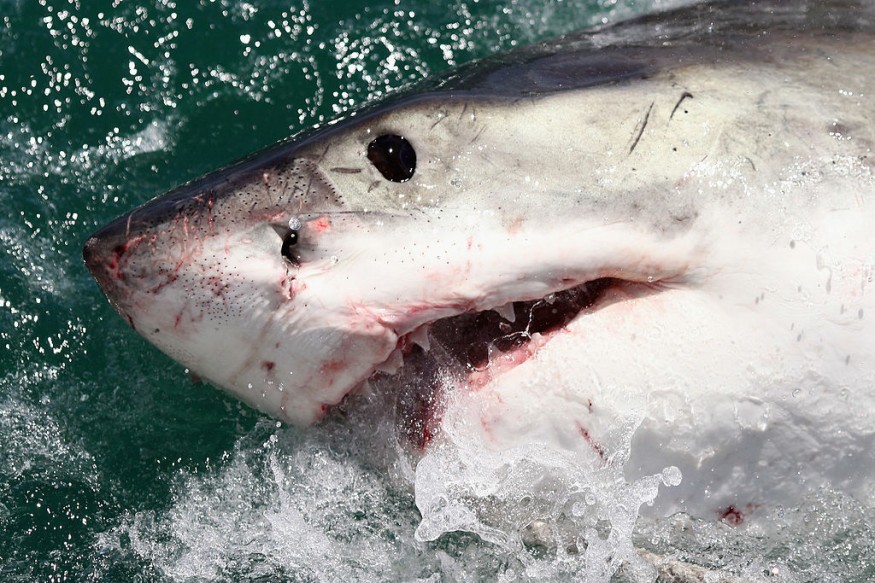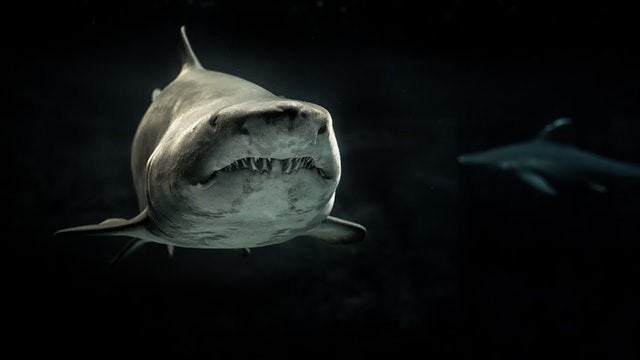The New England Aquarium's John Chisholm claimed "several" white sharks were sighted off the coast of the Cape on Thursday and another off the beach in Truro on Friday.
On Thursday, one was observed attempting to track down a Bluefin tuna, but the tuna eluded capture, according to Chisholm's Facebook page.
Sharks Out
Just as beachgoers return to the Atlantic seas this summer, sharks are out in force off the East Coast and Florida.

A juvenile great white shark was just tagged for the first time near Rhode Island. A dolphin was photographed swimming in South Carolina after being presumably attacked by a shark. On Thursday, a shark attacked a guy swimming along a fishing line off Grayton Beach State Park in Florida. A 12-year-old boy and a man were also attacked by sharks in Volusia County on Monday.
Maine's state beaches and coastal parks will adopt a shark-flag system similar to that used in the neighboring New England state of Massachusetts to alert citizens to the presence of sharks. Residents are paying attention as these marine apex predators pass through the region, and local governments take measures. Maine is expected to be one of the first states to adopt a shark flag system.
The first reported fatal shark attack occurred in the Pine Tree State in July of 2020. The frequency of Atlantic great white shark detections on Massachusetts' Cape Cod peninsula has increased since the species were declared protected, and seal numbers have continued to climb.
A 26-year-old male was killed by a white shark at Massachusetts' Newcomb Hollow Beach in 2018, the first fatal shark attack in the state since 1936.
Last year, the International Shark Attack File at the University of Florida documented 57 unprovoked shark bites on people.
Decrease in Shark Attacks
Even though shark attacks dropped for the third year in a row in 2020, 10 unprovoked bites resulted in deaths, making it the worst year for such attacks since 2013.
Related Article : Small White Shark Population Continues to Thrive in the Coast of Central California
Increase in Shark Sightings

Atlantic White Shark Conservancy "Stock status remains unclear" despite an increase in shark sightings and detections. Great white sharks in the Northwest Atlantic may have fallen by 80% before federal protection in the late 1990s. The AWSC tags and tracks white sharks then shares the information with safety officials and the general public.
Wigren also stated that the distribution of white sharks along the East Coast "had not altered" based on historical data dating back to the 1800s.
The Massachusetts Shark Research Program stated in 2019 that they have tagged more sharks on the Cape than ever before.
According to AWSC, the month of August has seen the highest detections in the previous four years. The shark season lasts until the end of October.
Sharks have been sighted near beaches in New York, New Jersey, and Massachusetts. Ocearch, a shark-tracking organization, says there are "thousands" of sharks on the East Coast right now. The Marine Mammal Protection Act prohibited seal hunting and killing in Massachusetts in the 1960s. In 1972, seals began to repopulate the region.
Wigren warns that, in addition to the more than 50 shark species present off the East Coast, those who want to swim should be mindful of the presence of white sharks.
Humans should be aware that sharks search for seals in shallow water, avoid murky or low-visibility water, swim in groups and near to shore, reduce splashing, and follow lifeguard warnings and instructions.
She continued, "It's critical for beachgoers to be aware of their surroundings and to pay attention to signs, flags, and safety rules."
In the west, sightings of young great whites around the California coast have risen as well.
Population Increase?

Recent research published in the journal Biological Conservation revealed that great white sharks in the Pacific seas increased from 2011 to 2018.
Researchers detected approximately 300 adult and sub-adult individual great white sharks, up from just 219 sharks in a three-year study in 2011. The Monterey Bay Aquarium is the only place in the world where shark sightings have been recorded for more than 2,500 hours of observation. Their findings might imply that conservation efforts are effective.
White sharks, however, are threatened by overfishing and poaching, as LiveScience pointed out last month.
"Because white sharks are very scarce, it's difficult to determine how many exist in our waters. Shark regulations, according to research, have likely increased shark numbers, notably in the Northwest Atlantic "NOAA Fisheries of the National Oceanic and Atmospheric Administration (NOAA) stated in 2019.
NOAA says there is no evidence that sharks are spending more time near shore due to warming waters. The Environmental Protection Agency (EPA) claims that climate change is heating up ocean waters, affecting marine ecosystems such as coral reefs. NOAA and NASA revealed earlier this week that the Earth's energy imbalance nearly quadrupled between 2005 and 2019.
Sylvia Earle, a famous oceanographer, marine biologist, and President and Chairman of Mission Blue, urged for action in an emailed statement to Fox News.
Fore more news from the animal kingdom, don't forget to follow Nature World News!
© 2025 NatureWorldNews.com All rights reserved. Do not reproduce without permission.





